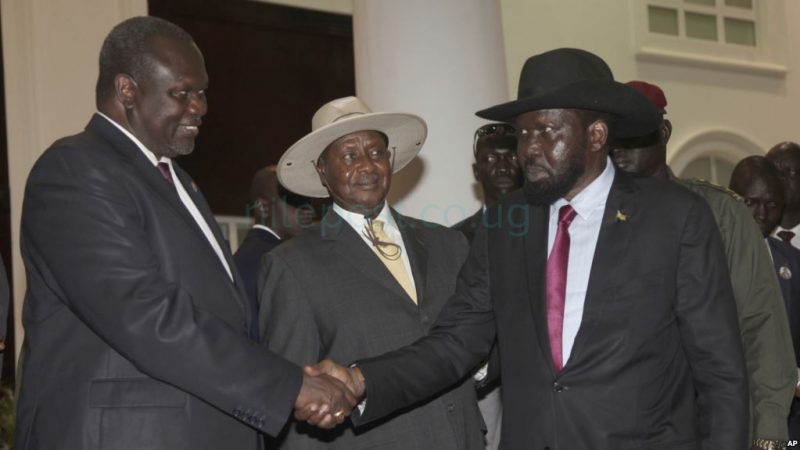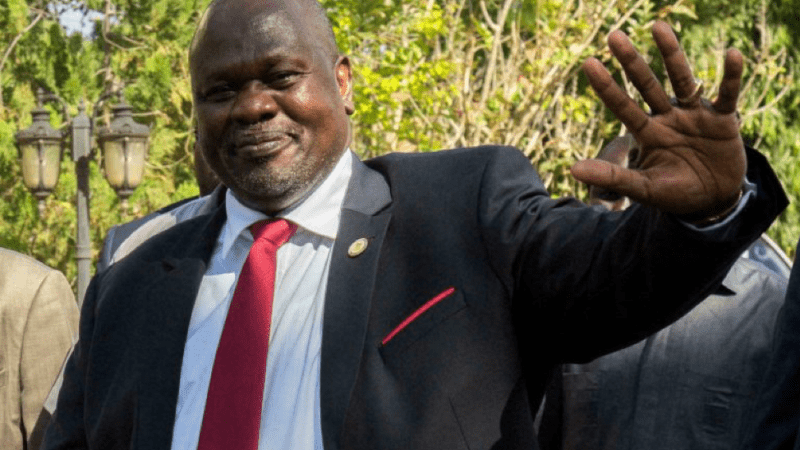The administrators of Ugandan districts and South Sudan counties that straddle the common border between the two countries last week signed an agreement on joint management of security.
The accord was signed between the Ugandan security committees from Lamwo and Kitgum districts and the commissioners of Magwi, Budi, and Ikwotos counties of South Sudan at a ceremony held at Magwi County headquarters in Eastern Equatoria State.
The South Sudan government was represented by David Otto, the commissioner for Magwi County; Mboya Akileo the commissioner for Budi County, and Caesar Ingong Abondio, the commissioner for Ikwotos County while Uganda was represented by Geoffrey Osborn Oceng and Jimmy Ssegawa Ebil, the Lamwo and Kitgum Resident District Commissioners (RDC) respectively.
The leaders agreed to eliminate the barriers to the free movement of people, goods, and services between Uganda and South Sudan under the East African protocol. They also agreed to put a mechanism to facilitate the movement of refugees across the border points as well as sensitize them on refugee policies regarding the cross-border movement by refugees through gazetted and ungazetted border points.
The deal also spelled that South Sudan and Ugandan security agencies collaborate and end harassment of refugees, returnees, and traders following the recent spate of arrests and harassment of people as they cross the border from both sides.
“There is illegal crossing with firearms by criminals from both sides. Illegal crossing with firearms is prohibited and punishable by law. The parties agree to curb the vice,” the agreement read in part. “The parties agree to strengthen security and observation of human rights and protection policies.”
The pact also said that mechanisms be put in place to ensure that their respective (customs) officers working at the border points adhere to government policies about their roles and responsibilities to end unnecessary charging of traders at border points.
“On the issue of smugglers and cattle rustlers, the parties agree to intensify patrol and increase intelligence information sharing to curb the vices,” the agreement reads. “The parties agree to ensure gender mainstreaming in the services offered at the border points due to a lack of gender sensitivity at border points both in Uganda and South Sudan.”
Oceng told Uganda’s The Monitor newspaper that the parties also agreed to sensitize people on Ugandan road user policies and use official border crossing points rather than illegal crossing points along the porous border.
“South Sudan and Ugandan security have agreed to put in place a mechanism to counter cattle rustlers. Regarding illegal logging, the parties agreed to enforce relevant laws that promote the environment and regulate the use of natural resources,” Oceng said. “This comes as a result of land conflicts along border points mainly in the areas of Palabek Nyimur, Lokung, and Madi-Opei (Uganda) and Pogee, Lobone, Owiny-ki-bul, and Tseretenya (South Sudan). The implementation progress made shall be reviewed quarterly.”
Local authorities in Eastern Equatoria (Magwi, Ikwoto Budi), Lamwo, and Kitgum districts recently entered into discussions involving community development, protection, safety operation, and social service.
“Over the years, due to civil wars, the two countries have interchangeably hosted refugees from either country, with relative peace,” said Mboya Akileo, the county commissioner for Budi County. “There is the continuous movement of people across the border points between the two countries. The parties agreed that this MoU shall be overseen by the management of the district security committees of Lamwo and Kitgum and counties of Magwi, Budi, and Ikwoto.”










